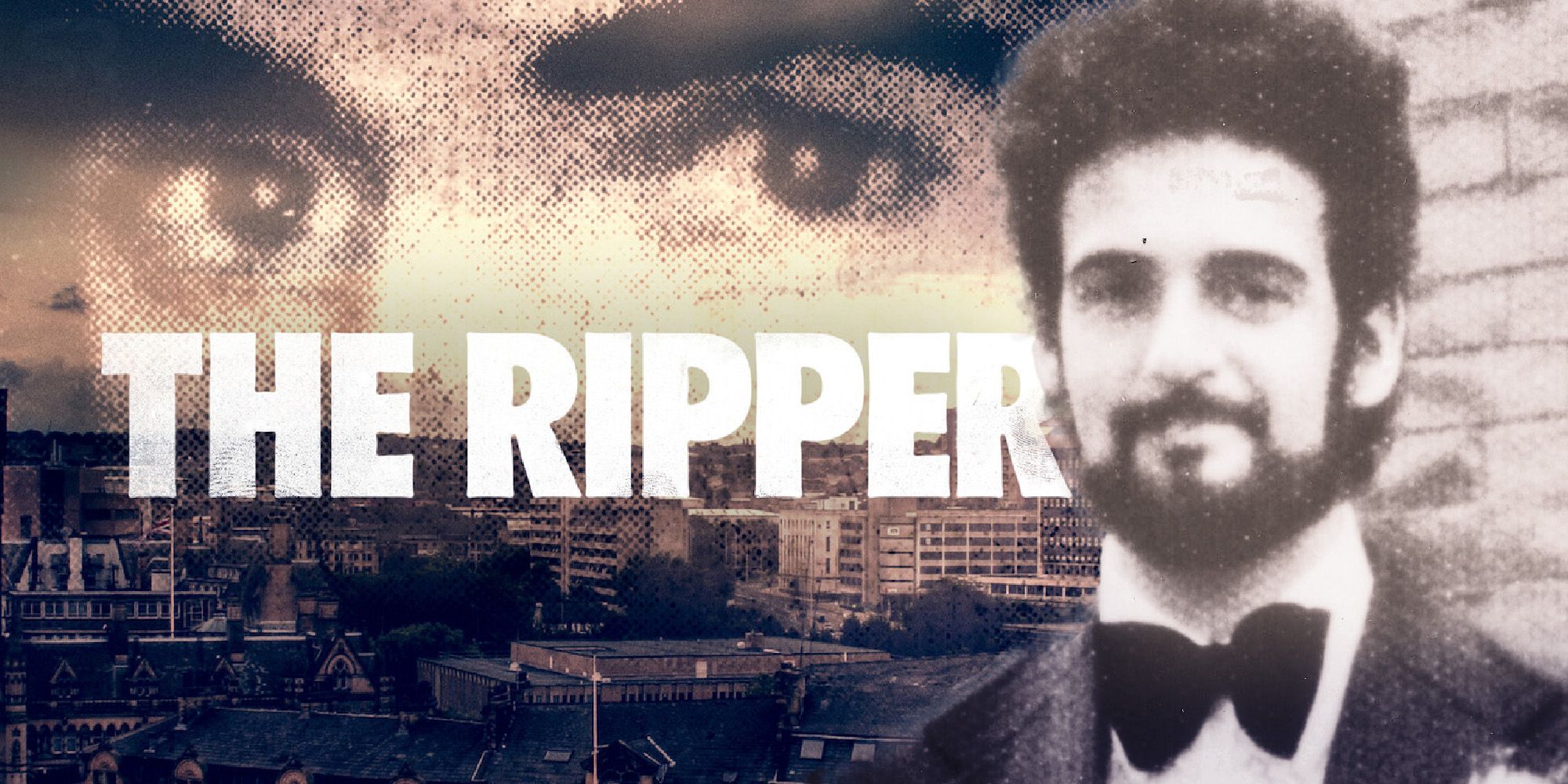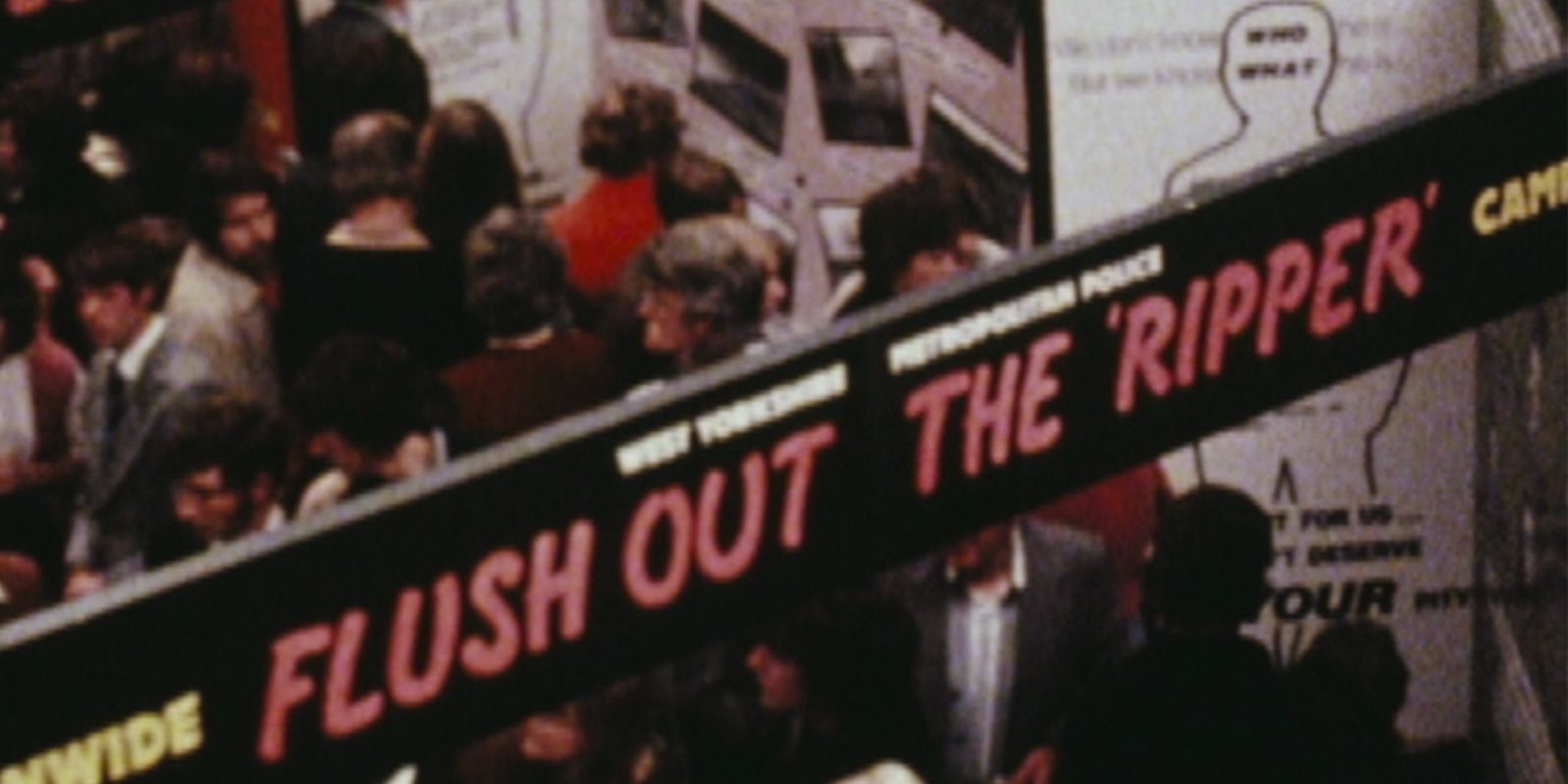Does The Ripper on Netflix glorify serial killers? Directed by Jesse Vile, the four-part production documents a series of murders committed by Peter Sutcliffe, who was branded as the "Yorkshire Ripper" in the media during the late '70s. According to surviving victims and family members who participated, Netflix changed the official title after interviews were completed, seemingly to capitalize upon the popularity of the true crime series.
The Ripper premiered on Netflix just weeks after Sutcliffe's November 2020 death at age 74. The docuseries takes a linear approach by exploring each and every murder that was committed by the subject in West Yorkshire and Manchester between 1975 and 1980. Much of the narrative underlines the investigators' belief that the killer targeted only prostitutes, despite the fact that the collective evidence suggested otherwise. The third episode, "Reclaim the Night," shows how English women reacted to persistent fear-mongering by male acquaintances and authorities, while the series finale details how Sutcliffe was eventually caught in 1981.
Based on a recent report (via The Times), the working title for The Ripper was "Once Upon a Time in Yorkshire," which is actually the name of the first episode. Due to the titular change, various relatives of the victims are concerned about a celebrity depiction of Sutcliffe, and with good reason considering that numerous Ted Bundy documentaries have prioritized the serial killer's cultural persona rather than the mental illness that led him to murder numerous women. But while Netflix should be criticized for seemingly being deceptive about The Ripper, the docuseries actually invests little time humanizing the subject. In fact, Sutcliffe doesn't appear until the fourth and final episode. Crucially, Netflix can justify its title given that it aligns with the real-life marketing campaign to "flush" out information that could solve the case.
The Ripper may capitalize upon the sensational aspects of the true story, but there's little evidence to suggest that the docuseries glorifies certain aspects of the subject's personality. The majority of the first three episodes of the Netflix true story function as a cultural commentary on the failures of investigators, and how the case inspired a hoax that made authorities believe that they were actually communicating with the killer. The Ripper certainly could have spent more time on the backstories of the victims, but what's provided is far more than any screen time afforded to Sutcliffe. In The Ripper, Joan Smith of the Sunday Times explains the importance of psychology when trying to understand the motivations of serial killers like Sutcliffe:
"After he was arrested, there was a kind of desire for him to be the monster. He has to be completely outside the culture that he comes from. And I thought this cannot be true. You know, people -- people don't, kind of, spring fully-formed without any connection to the society they grow up in."
In the 2020 HBO documentary Crazy, Not Insane, psychiatrist Dr. Dorothy Otnow Lewis discusses her multi-decade quest to better understand why people kill. During the '80s, she was criticized by colleagues for suggesting that serial killers weren't just "insane" monsters, but rather people who typically experienced brain damage during their formative years. In the case of Sutcliffe, Smith's research shows that he grew up in a toxic environment that "normalized" contempt for women. After being labeled as a "sissy" for defending his mother against an abusive husband, Sutcliffe began to correlate women and femininity with weakness, and subsequently transformed into a violent individual. The Ripper can indeed be interpreted as a glamorization of the subject's crimes, but - in comparison to other true crimes docuseries - the director spends an appropriate amount of time exploring the psychology that influenced Sutcliffe's actions as an adult.


